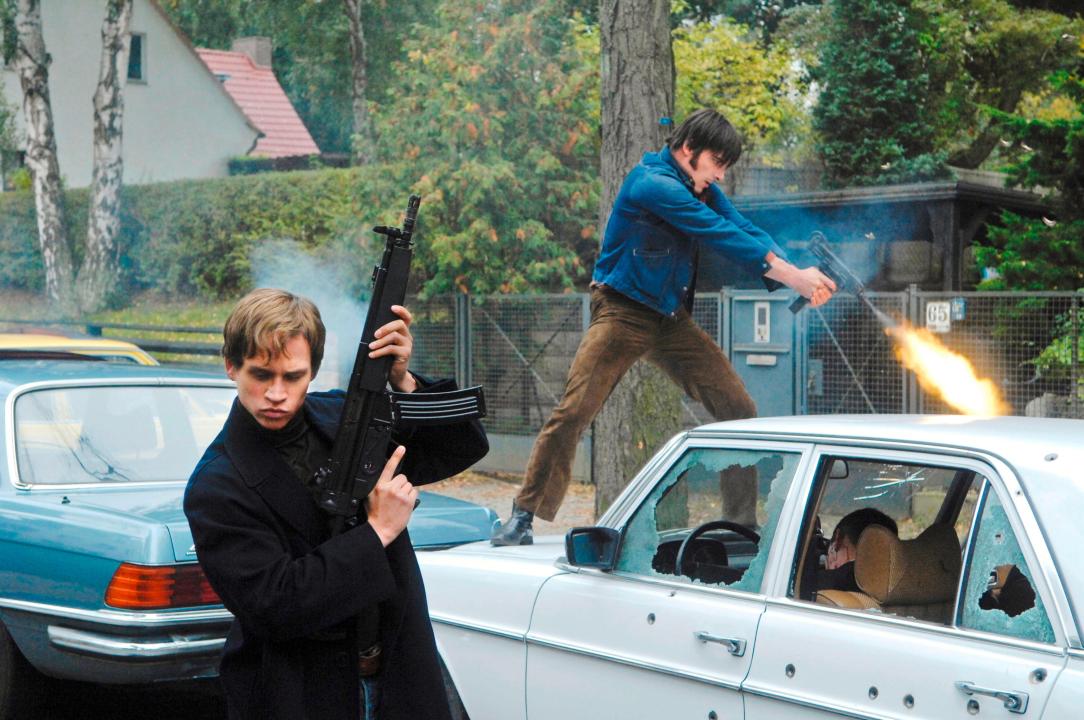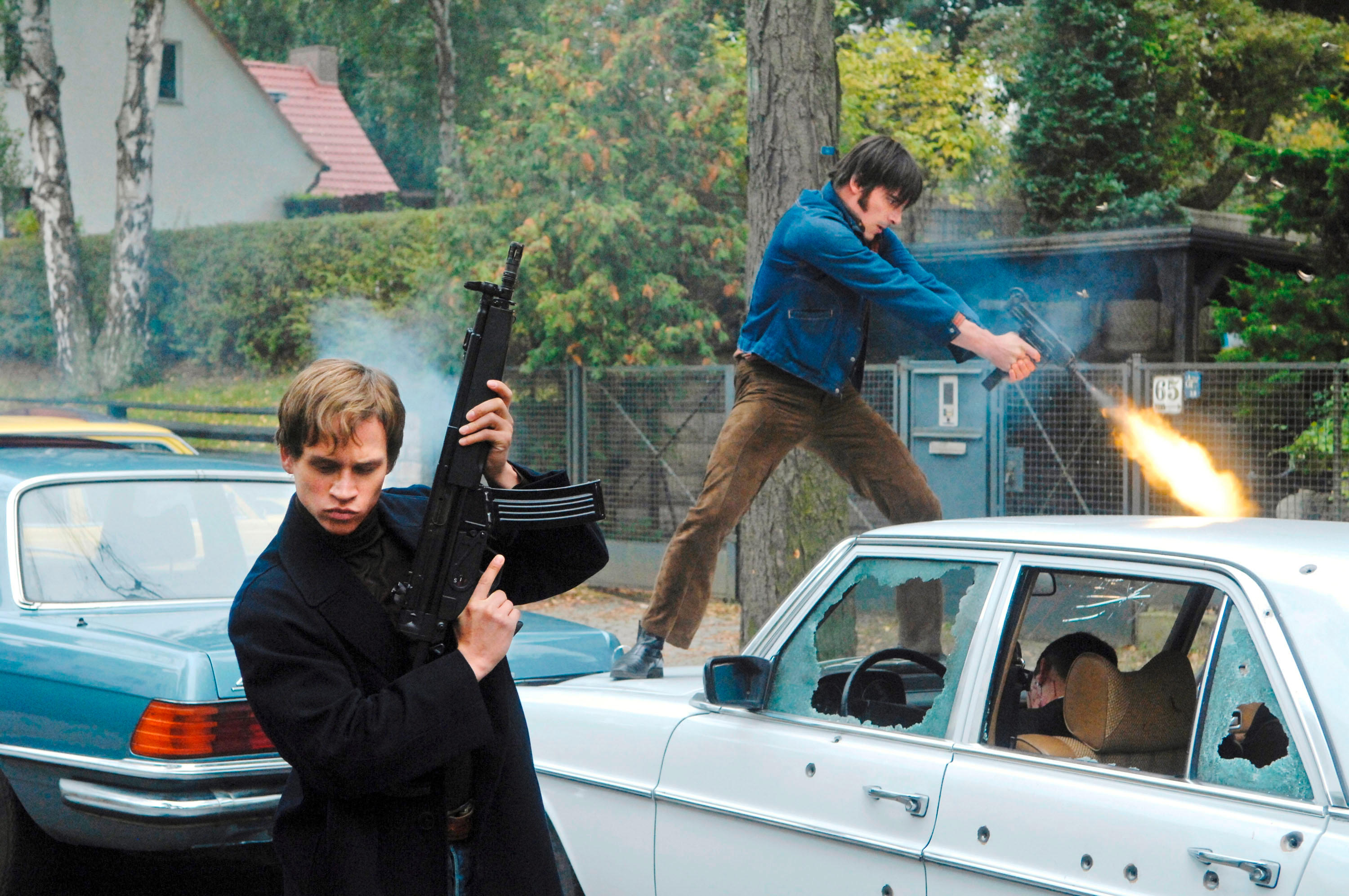The first decade of this century, following Al Qaeda’s attack on the Twin Towers and the Pentagon in September 2001, was something of a golden age for films about terrorism, a spate of them following in quick succession. In the light of Hamas’s 7 October mass-killing of innocent Israelis, it’s interesting and informative to watch one or two again – and see how the nature of terrorism changes little.
We get the terrorist as preening popstar, surrounded by women, whose every act of violence is like the release of a new album
A good place to start is Antonia Bird’s The Hamburg Cell (2004), which tells the story of the terrorists who flew the planes that day and had made the west German city their base. Centre stage is the character of Ziad Jarrah – the Lebanon national who hijacked United Airlines 93 (and was ultimately forced by passengers to crash it into a Pittsburgh field). When we first meet Jarrah in Germany, he’s young, smiley and unguarded, interested in ‘cars and planes and pretty Turkish girls.’
Yet invited to a local mosque – one he starts attending regularly – Jarrah is steadily radicalised, sucked into a group of young men cut adrift by what the West has to offer. ‘There’s no God in this modern world,’ says one of them. ‘It’s brutal, it’s schizophrenic, it’s totally chaotic.’ Instead, fundamentalist Islam offers them an austere sense of belonging and its own distinct lifestyle: praying sessions in darkened rooms, endless cups of tea, Quran readings and furious debates about Jihad – leading step by step to 9/11.
Palestine – initially of little interest to him – begins to occupy a central position in Jarrah’s thoughts and is part of his radicalisation. Money is collected routinely for ‘our Palestinian brothers’ at prayer meetings, and the sufferings of the displaced are used to build a sense of grievance and routine anti-Semitism, both of which are channelled later on. Jews ‘run America,’ he’s told; cell leader Mohammed Atta, who later flew one of the planes into the World Trade Centre, remarks that whether the Holocaust happened or not is irrelevant: ‘The point is that the Jews ultimately profited from the second world war. They used the Holocaust to steal our brothers’ homeland.’ Muslims who express qualms about killing Christians or Jews are quickly expelled from the group, sometimes physically. The juggernaut is moving on without them.
As Ziad becomes more devout we also see him grow aloof, moodier, and more prone to tell lies to his (non-fundamentalist) family. He also, in his new-found self-righteousness, starts to oppress those closest to him: ‘What are you doing relaxing?’ he screams at his girlfriend. ‘Women and children are being slaughtered in Palestine!’ Increasingly he seems to inhabit a world centuries away from this one, in which violence and spiritual kitsch are dangerously mixed. Given a pep talk before 9/11, he’s told he’s about to do a ‘great, great thing’ and become like one of the ‘companions’ of antiquity. We all know how this story ends.
Another knockout film from the decade was The Baader-Meinhof Complex (2008), Uli Edel’s portrait of the Red Army Faction terrorists in 1970s Germany and the mindset, the complex, which drove them. As frustrated, crusading journalist Ulrike Meinhof begins to doubt the power of her pen and turns to direct action instead, we enter, along with her, a world of homemade bombs, quotations from Chairman Mao and casual mass-murder. It’s presided over by the anti-capitalist Andreas Baader, an unstoppable force looking for immovable objects to dynamite, and his girlfriend Gudrun Ensslin, no slouch with a grenade herself.
Once again, Israel and Palestine are a trope running through the film. Caring vocally about the latter is a ticket to belonging and a part of radical chic, as much a vital accessory as an Afghan coat or a poster of Che. When we first meet Ensslin at her family home, she’s furiously decrying Israel’s actions in the Six Day War. ‘It’s Israel’s right to defend itself,’ mutters her clergyman father.
‘Then Hitler’s attacks on Poland, Russia and France were defensive too,’ Ensslin snarls back at him. It’s an exchange which might have been lifted verbatim from social media this autumn. Yet some of the film’s rare light moments come from seeing how utterly incompatible the two cultures are. When the Baader-Meinhof gang travels to a Jordanian training camp, they find themselves incapable of following the rules. Baader refers to his Arab trainer as ‘Ali Baba’ and a ‘camel driver.’ The group, sunbathing naked on the roof of their barracks, bitterly offend the Muslim locals and take pride in it. ‘Queers for Palestine’ should perhaps pay attention here.
As for Baader-Meinhof’s opponents, they’re frequently reduced by the gang to symbols – Jew, banker, high court judge or agent of imperialism – and are correspondingly easy, with a heightened sense of rectitude, to snuff out. Nor is it a fleeting phenomenon. After the suicides (executions?) of Meinhof, and with Baader and Ensslin in jail, a new generation of B-M terrorists springs up, ready to embrace ever more savage acts in their name. Fast-paced, unflinching and with a thumping soundtrack, it’s a film to leave you shaking.
This is also true of Carlos (2010), Olivier Assayas’s splendid three-part TV miniseries about Ilyich Ramirez Sanchez, AKA Carlos the Jackal, a figure whose black and white image anyone over 40 can remember staring out, creepily, from 1980s newspapers. Assayas follows Carlos from the moment he joins the PFLP (the Popular Front for the Liberation of Palestine) in 1970. Later sacked for insubordination, he hires his services out to the shadier departments of Middle Eastern governments. Far from being the architect of history he dreams himself to be, Carlos ends up, with the passing of the Cold War, washed up and useless, a burnt-out relic of history.
Until then we get the terrorist as preening popstar, surrounded by women, whose every act of violence is like the release of a new album. Leading actor Edgar Ramirez plays Carlos as narcissistic and self-deceived, a man addicted to violence and power, whose good faith may simply spring from a chronic lack of self-knowledge. Around him, Assayas manages to recreate a subculture – the freedom songs, the raised fists and Marxist bookstores, the political groupies turned on by cheap slogans, and the violence which is the logical end point of it all. We witness Carlos and his bosses work to disrupt the Palestinian peace process – ‘Arafat is a dog,’ he hisses – and see their blanket anti-Semitism. Carlos casually bombs a Jewish bank, hurls grenades into a Jewish chemist, and makes an assassination attempt on the UK chairman of Marks and Spencer. Throughout he remains, in his mind, a man of honour on the side of the oppressed, someone who wants to ‘do good’. A media-cult forms around him.
‘The only thing we learn from history is that we learn nothing from history,’ said Hegel, and Carlos convinces you that terrorism isn’t so much to do with injustice as with a character type that’s always with us, along with the human tendency to glamourise or excuse their darkest acts. ‘We are the victims,’ said Hamas spokesmen Ghazi Hamad recently, ‘therefore, nobody should blame us for the things we do.’ The ‘Baader-Meinhof Complex’, safe to say, is alive and flourishing.
This article is free to read
To unlock more articles, subscribe to get 3 months of unlimited access for just $5







Comments
Join the debate for just £1 a month
Be part of the conversation with other Spectator readers by getting your first three months for £3.
UNLOCK ACCESS Just £1 a monthAlready a subscriber? Log in